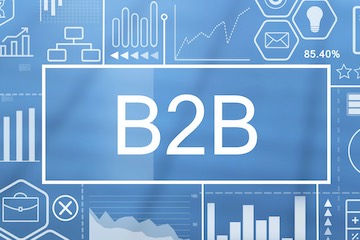I’m hearing the word “pivot” from B2B merchants. Manufacturers and distributors are pivoting to keep up with the pace of change. Example pivots include:
- New products. The pandemic has generated demand for hand sanitizer, face shields, and other personal protective equipment.
- New markets. Products that companies previously sold to one industry are now suitable for others. Schools, for example, are buying specialized health care items for the first time.
- New processes. The remote workforce has altered sales and customer-service functions. For many businesses, adapting to those changes while maintaining quality and efficiency has been difficult.
Harnessing Data
The pandemic-induced change is especially challenging because of the unknown afterward, post-Covid.
Businesses are asking:
- How big is the current opportunity, and for how long?
- How much do we invest and where?
- How do we reach new markets quickly?
- Can our team navigate the changes effectively?
Ecommerce provides critical data to answer those questions and more. Site search reports can identify popular products. Machine learning can determine the content that interests your site visitors. And testing various tactics — messaging, pricing, promotions, features — can confirm the most profitable items and bundles.
Data needs vary from business to business. To leverage what’s needed for your company:
- List the assumptions around your business plan and strategy. Then determine the data that would validate those hunches. Ask your developer team to provide the data if it’s unavailable.
You likely have more data than you realize. The problem could be accessing it and making the info meaningful. Spreadsheets can be a good starting place for pulling it all together.
Where to Invest?
Companies that invested in ecommerce in the last couple of years are seeing their investments pay off. B2B customers are increasingly demanding online purchasing and support. The pandemic has accelerated this trend. (I’ve addressed how to sell online with a minimal investment.)
As you prepare to enter new markets, digital advertising can be an effective, targeted way of reaching new buyers, especially when paired with ecommerce. Moreover, digital advertising produces a wealth of data to inform your strategy and approach.
Virtual trade shows, Zoom calls, and email are replacing traditional sales activities. Email marketing is especially effective when it’s personalized to recipients’ interests based on their online browsing and order history.
Opportunities
Challenges are opportunities to innovate. Embrace the possibility that your company can come out of the pandemic stronger and better prepared for the inevitable digital-driven future.







